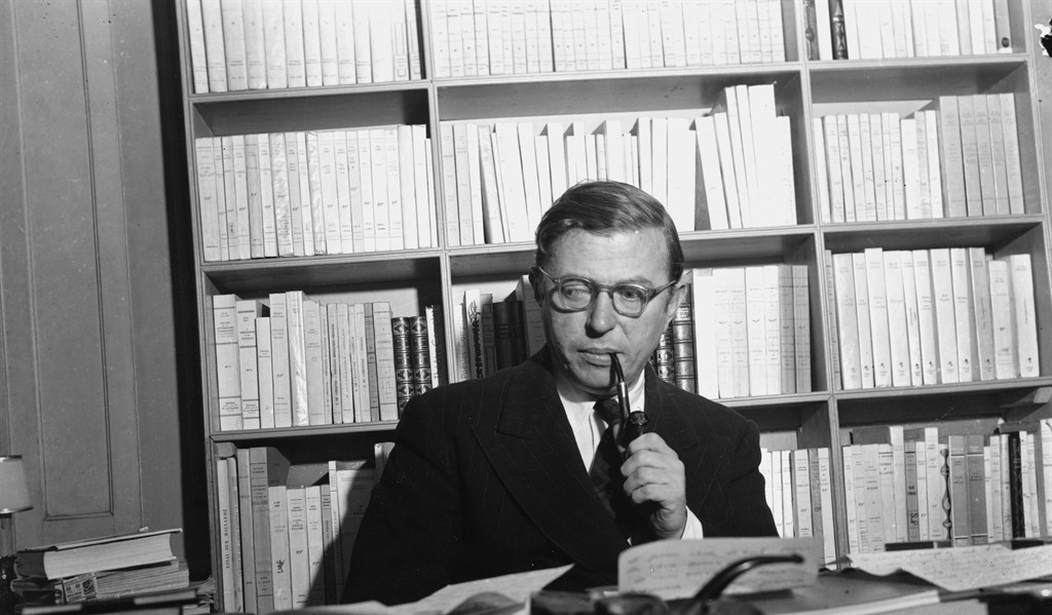Unfortunately, there is a sinister tradition of left-wing intellectuals justifying or even celebrating “revolutionary” or “anti-imperialist” violence. On September 5, 1972, the Palestinian terrorist organization “Black September” took athletes who were participating in the Olympic Games in Munich for Israel hostage; all 11 were killed. Jean-Paul Sartre, the playwright, philosopher and main exponent of existentialism, is regarded as the leading figure of 20th century French intellectuals. In an article entitled “About Munich,” published a few weeks after the terrorist attack, he wrote: “In this war the Palestinians’ only weapon is terrorism. It is a terrible weapon but the oppressed poor have no other, and the French who approved FLN terrorism against the French must approve in turn the Palestinians’ terrorist action. This abandoned, betrayed, exiled people can show its courage and the force of its hate only by organizing deadly attacks.”
This statement is no exception: Sartre and his partner Simone de Beauvoir, whose feminist work “The Other Sex” established her as France’s best-known intellectual, were fervent admirers of Mao Zedong and praised the “revolutionary violence” he practiced as an expression of higher morality. Sartre said: “A revolutionary regime must get rid of a certain number of individuals who threaten it and I see no means for this than death; it is always possible to get out of a prison; the revolutionaries of 1793 probably didn’t kill enough people.”
Sartre admired or defended the actions of anyone who somehow opposed capitalism, from the standard-bearer of the Cuban revolution Che Guevara to the Cambodian dictator Pol Pot, who had 2 million compatriots and thus 20 percent of his own population killed.
Among the leading intellectuals of the 20th century, dictators such as Josef W. Stalin and Mao Zedong had more admirers than capitalism and its leading proponents. Their hatred of capitalism was so great that many of them became reverent admirers of the greatest mass murderers of the age. I am not talking here about some outsiders or eccentrics, but about the 20th century’s leading intellectuals. One example is the French writer Henri Barbusse, who became world-famous for his war diary Under Fire, published in 1916. It was translated into more than 60 languages and Barbusse was awarded the Prix Goncourt, the most prestigious French literary prize. He later became one of the most fanatical admirers of the Soviet dictator Stalin, about whom he wrote: “His history is a series of victories over a series of tremendous difficulties. Since 1917, not a single year of his career has passed without his having done something which would have made any other man famous. He is a man of iron. The name by which he is known describes it: the word Stalin means ‘steel’ in Russian.”
Recommended
The French philosopher Michel Focault, one of the leading proponents of poststructuralism and the founder of discourse analysis, vented his own rage against the capitalist elite in a televised debate with Noam Chomsky in 1971: “The proletariat doesn’t wage war against the ruling class because it considers such a war to be just. The proletariat makes war against the ruling class because, for the first time in history, it wants to take power. When the proletariat takes power, it may be quite possible that the proletariat will exert toward the classes over which it has triumphed a violent, dictatorial and even bloody power. I can’t see what objection could possibly be made to this.”
And the justification of violence and terror, as long as it is directed against capitalism, continues to this day. Slavoj Žižek, one of the most prominent left-wing intellectuals of our time, argues for a “new communism” in his 2021 book A Left That Dares Speak Its Name: “What we need today,” he writes, “is a Left that dares to speak its name, not a Left that shamefully covers its core with some cultural fig leaf. And this name is communism.” The Left, he argues, should finally abandon the socialist dream of a more equitable and “just” capitalism and enact more radical “communist measures.” As a clearly formulated goal, he proposes that “the opposing class has to be destroyed.”
According to Žižek, Mao’s Great Leap Forward in the late 1950s – the greatest socialist experiment in human history – presented an opportunity to “bypass socialism and directly enter communism.” Unfortunately, many people do not know anything about Mao’s Great Leap Forward: the historian Frank Dikötter offers the following assessment: At least 45 million people died unnecessary deaths as a result of this grand socialist experiment between 1958 and 1962. The majority died of starvation, while another 2.5 million were tortured or beaten to death – deliberately deprived of food and starved to death. “People were killed selectively because they were rich, because they dragged their feet, because they spoke out or simply because they were not liked, for whatever reason, by the man who wielded the ladle in the canteen,” Dikötter explains. And it is precisely this “Great Leap Forward” that Žižek extols so euphorically.
In an article in The New York Review under the title “The Violent Visions of Slavoj Žižek,” you can see which photo hangs over Žižek’s bed – that of the mass murderer Josef W. Stalin.
Rainer Zitelmann is the author of the book In Defense of Capitalism. https://in-defense-of-capitalism.com/

























Join the conversation as a VIP Member